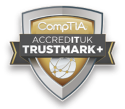Six Advantages Of Hiring An Infosec Biz to Safeguard Your Business
A few days ago I received an online Facebook chat message from a former colleague asking for a donation for the surgery of a close friend. I eagerly volunteered to help and took a few details including where the money was to be transferred. However, on calling her I was informed that it was not her that sent the message, but an ‘ imposter’ who had replicated her Facebook page and was contacting all the people on her list seeking a donation. Now imagine if I were a customer of yours and had received a similar message from your business Facebook page?
As businesses become more accessible to their customers, they unfortunately also become increasingly accessible to cyber criminals.
Smaller Businesses are the most vulnerable to cyber attacks
A 2013 report on information security by the U.K government confirms that cyber attacks on small businesses are up by 10%, with 87% of small businesses reporting some form of security breach in the last year. The report also highlighted that majority of these breaches were a result of staff action and that small businesses were often found lacking in user awareness, mobile device working policies, removable media controls, monitoring, network security and in their ability to respond to an incident of security threat. No wonder then smaller businesses offer the path of least resistance to attackers for gaining access to valuable customer data including credit card details, intellectual property and even money in the bank. As per an internet threat report published by Symantec in April this year, the highest growth in targeted attacks was seen in businesses with fewer than 250 employees.
Look beyond an anti-virus program to secure your business
Given these facts, it’s safe to assume that your business is unsafe and that you need to defend it against the most serious cyber threat. While email security is one aspect of safeguarding your business, unauthorized access to your business information via laptops, desktops, wi-fi printers / router, mobile devices and other access channels such as social media and cloud based services needs to be monitored. This means that instead of relying on a member of your staff or a part- time technology personnel, you need to consider hiring the services of a professional IT support company that is capable of deploying device controls, updated firewalls and a comprehensive network web security gateway.
IT support program can offer the following benefits to your businesses:
- Examine the business hardware for possible network intrusions
- Educate staff on desktop policies
- Check for outdated security definitions on systems
- Monitor incoming and outgoing traffic to detect potential threat
- Secure your website
- Streamline your network structure for ease of administration and scalability
Looking ahead it is predicted that social media, cloud service providers and mobiles will increasingly become the new cyber security battleground. This means multi-layer security software, an online user policy, installing security software on mobile devices and full risk assessment before signing up for a cloud service. Make sure your you seek adequate information on these aspects from your prospective IT support company.




